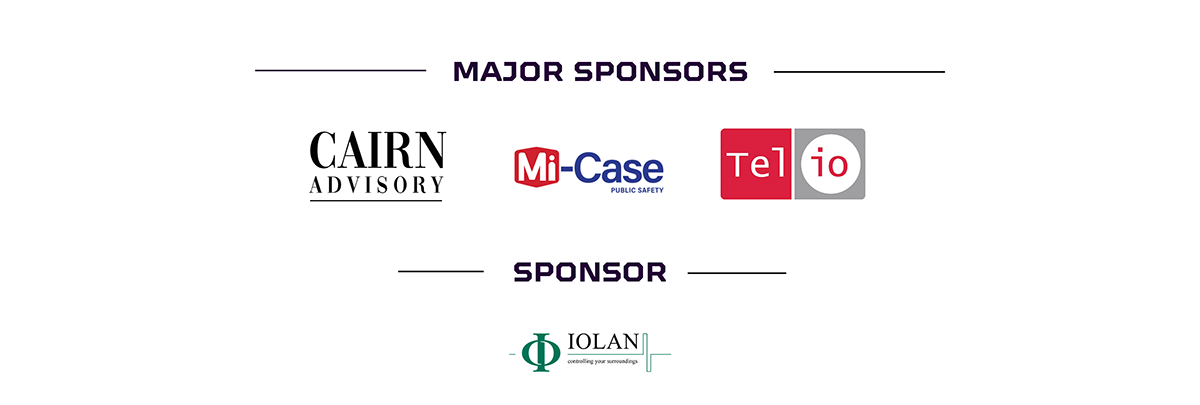- You are here:
- Homepage
- Events
- Past Events
- Corrections Technology Conference 2025
- Call for Papers
The Call for Papers is closed now.
The Smart Prison: unravelling the meaning of SMART in the context of prison and probation services
The International Corrections and Prisons Association (ICPA) recognises that the concept of a Smart Prison can vary significantly across different countries and regions. This diversity allows for the topic to be approached from multiple perspectives. To embrace this complexity, the conference program offers a range of workshops, themed breakout sessions, and case study discussions, ensuring meaningful and active participation for all attendees.
The conference aims to explore challenges related to the concept of Smart Prisons within four major themes. We invite participants to present new insights, innovative ideas, cutting-edge solutions, or interesting pilot projects. Additionally, we encourage sharing experiences, including challenges faced, setbacks encountered, and lessons learned, addressing the following key areas:
Challenges
1. User-friendly
We would like to hear how organisations use technologies to support the different people involved in the correctional systems, involving a broad spectrum of professionals and also including incarcerated individuals, people under supervision in the community and their friends and families.
-
How do you use technology to support your staff in the field?
-
What technologies do you use to support incarcerated individuals or people under supervision in the community?
-
How do you ensure the technologies you use are fit for purpose, easy to use, accessible, and effective?
2. Sustainable
We would like to hear about how you reflect on technologies in the context of reaching sustainable outcomes, is technology used to create systems and practices that are viable and beneficial in the long term, ensuring a balance between current needs and future potential?
-
Are technologies used to maintain the social wellbeing of individuals and support them in the longer term?
-
How do you address the need for sustainable, strategic and future-proof digital solutions in your organisation, including ongoing affordability?
-
Is environmental sustainability part of your digital transformation agenda?
-
Is technology used to support the preservation and promotion of cultural heritage, diversity, and practices for your diverse prison and probation population?
3. Intelligent
We would like to hear about the successes, the failures, and the thinking processes on embedding intelligent technologies into your organisational strategies, implementing intelligent-acting products and services, anticipating the rise of artificial intelligence and planning for smart buildings.
-
Have you developed strategies and policies on the use of Artificial Intelligence?
-
Have you implemented the smart building systems in the context of security, efficiency and/or rehabilitation? How did you plan for this?
-
What kind of decisions are or will be supported/driven by data?
-
How can technology allow us to be more efficient in the administration of corporate services like HR management, finance Management, and Facility Management?
-
How can technology improve mental health of our staff, and of our offenders?
-
What are the risks of technology for our staff, offenders or other stakeholders?
-
What are the technological skillsets we will need in the future?
4. Planning
We would like to hear about the success, the failures, and the thinking processes that you had to go through to convince your organisation and then the central government, about the need to invest and the longer-term outcome for the community/society, reduction in dependency on public service and for the individuals themselves.
-
What was your thought process for this exercise?
-
How long did it take, and who did you have to engage with?
-
What was the lead-in time from the start of the thinking to getting something signed off and then started?
-
Did you explore external funding sources/models for assistance?
-
What were some of the challenges, and did you get the result you wanted?
-
What can you share that others could reuse?
We would like to encourage people from different backgrounds (Public, Private, Academic or NGO) to respond to our challenges and present your projects, ideas, challenges and aspirations at this unique event. Abstracts can be presentations, suggestions for workshops or panel discussions and will be selected based on their quality and relevance to the theme. We will strive to have only one person/organisation and to maximise the regional spread of speakers’ origin.
They should fit the following criteria:
-
Presentations must align with at least one of the challenges.
-
Presentations from any sector will be considered (multi-sector presenters preferred).
-
Abstracts must include at least three questions for discussions.
-
Any references to research or outcomes must include sources.
-
Presentations will be non-commercial/non-product focused with an emphasis on case studies or examples of how a problem has been solved.
To encourage participation, presentations should ideally include an interactive element to engage attendees. When submitting the abstract, please specify the theme and topic you want to address, the solution you want to present and the format of your session no later than October 18, 2024.
Should you need additional information, please email us at [email protected]

